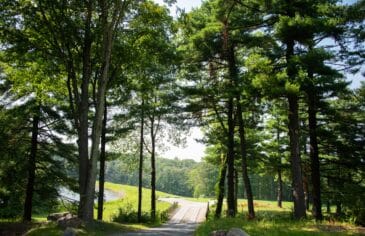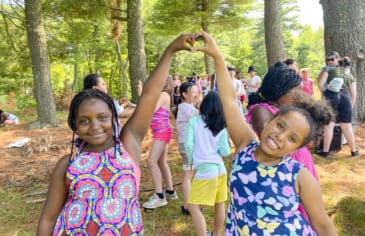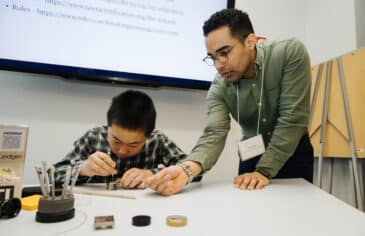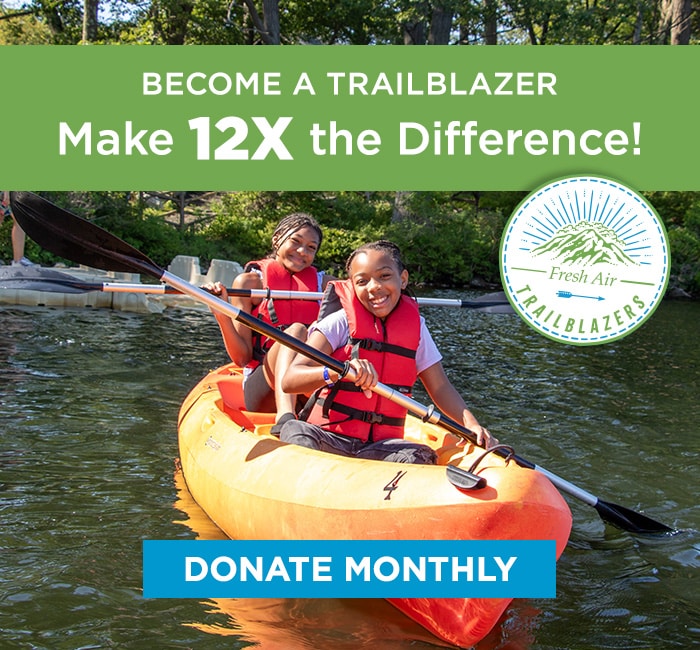Why is Outdoor Play Important for Kids?
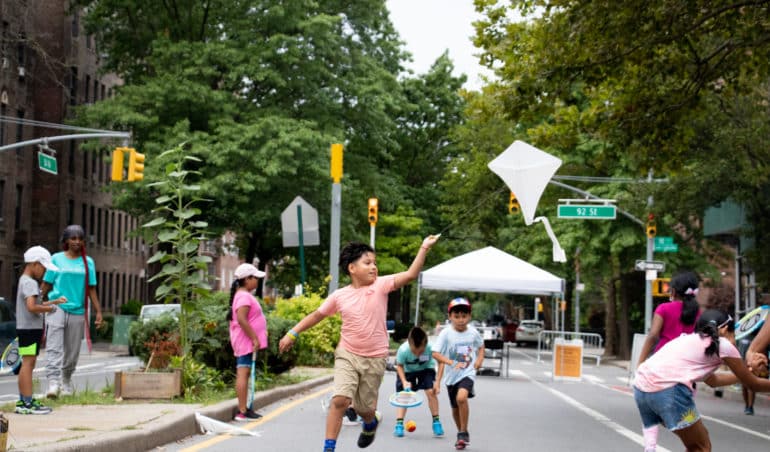
“Camp is different from the city because we are outside a lot more. We aren’t inside glued to our phones. I was afraid I would be bored at camp, but we have so much fun,” said thirteen-year-old Fresh Air camper, Layla.
For children, like Layla, we have seen that now, more than ever, providing safe play experiences in outdoor environments is crucial for a child’s development.
This summer, The Fresh Air Fund’s programs included sleepaway camps and the Friendly Towns program, which were not able to operate during the pandemic. In addition, the Summer Spaces program continued to provide safe play streets in Brooklyn, Manhattan, the Bronx and Queens for kids to participate in activities like arts and crafts, STEM, sports and music. The Summer Teen Academy and Family Wellness program, both started during the pandemic, also continued to offer a range of program options to NYC children and families.
Through all The Fund’s programs, this summer we saw the importance of providing safe outdoor play for kids, particularly after the experiences families had during Covid-19, when the reality for NYC children was spending most of their time at home indoors and having very limited time outdoors being active and interacting with peers.
According to the American Camp Association (ACA), “Campers who have missed out on in-person learning and after-school activities often struggle with following camp procedures and making friends, compared to pre-pandemic campers.”
This summer, we saw that the impact of providing opportunities to play in nature and outdoor learning environments had three specific benefits of helping youth build connections, overcome challenges and discover confidence. There are numerous examples of outdoor play during Fresh Air Fund summer programs from throwing a frisbee, playing jump rope or tennis, or simply playing tag.
BUILDING CONNECTIONS
As part of the Summer Spaces program, The Fresh Air Fund partnered with Street Lab, a nonprofit that creates and shares extraordinary programs for public space across New York City—pop-up reading rooms, open-air drawing studios, and more.
“Doing anything outdoors is generally healthier. What’s more important from a Street Lab perspective is the opportunity for kids to play outdoors, in plain view, right in their neighborhoods, where they can be seen playing and meet their neighbors – has a ripple effect” said Street Lab Co-founder and Executive Director, Leslie Davol, sharing the importance of providing safe outdoor play spaces for children.
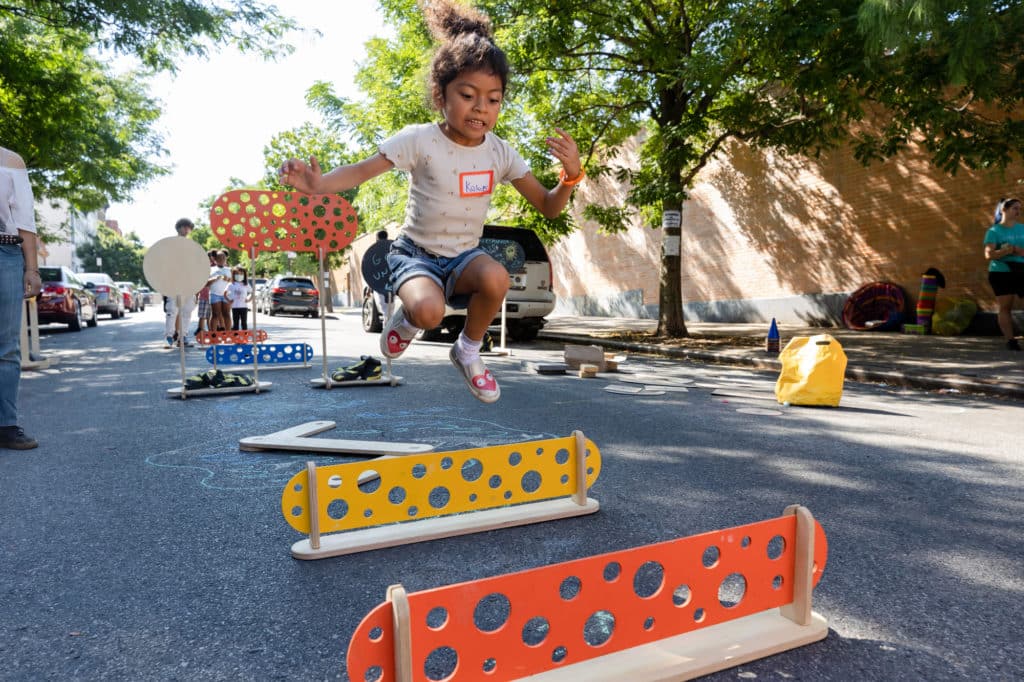
PC: Liz Ligon
Leslie also shared that for their programs and kits to “work,” in terms of Street Lab’s mission and priorities it must provide a good experience – participatory, walk-up/drop-in and voluntary (i.e., no schedule or commitment and kids can join or leave anytime), can be done alone, but also together. It is based around a simple, universal activity that is accessible to everybody, no matter your age, skill, ability, or background and can work in all kinds of neighborhoods.
It is also important to understand that outdoor play benefits can go beyond social interaction. For example, it can be connecting with nature for the first time, finding excitement in a new piece of art you created or developing a passion for a new sport. For example, 7-year-old Amos shared, “I love learning about music and new instruments at Summer Spaces. The guitar is my favorite to play.”
OVERCOMING CHALLENGES
For many kids, camp is their first-time being away from home and campers can be nervous or shy when they first arrive. From the start, camp encourages kids to step out of their comfort zone as they navigate their new environment and meet new people.
“Camp is a supportive community where every person is given the encouragement to learn and grow. You create lifelong bonds through shared experiences like being away from home, a tough hike or trying an intimidating new activity,” The Fund’s Deputy Director of Camping, Kristin Short shares.
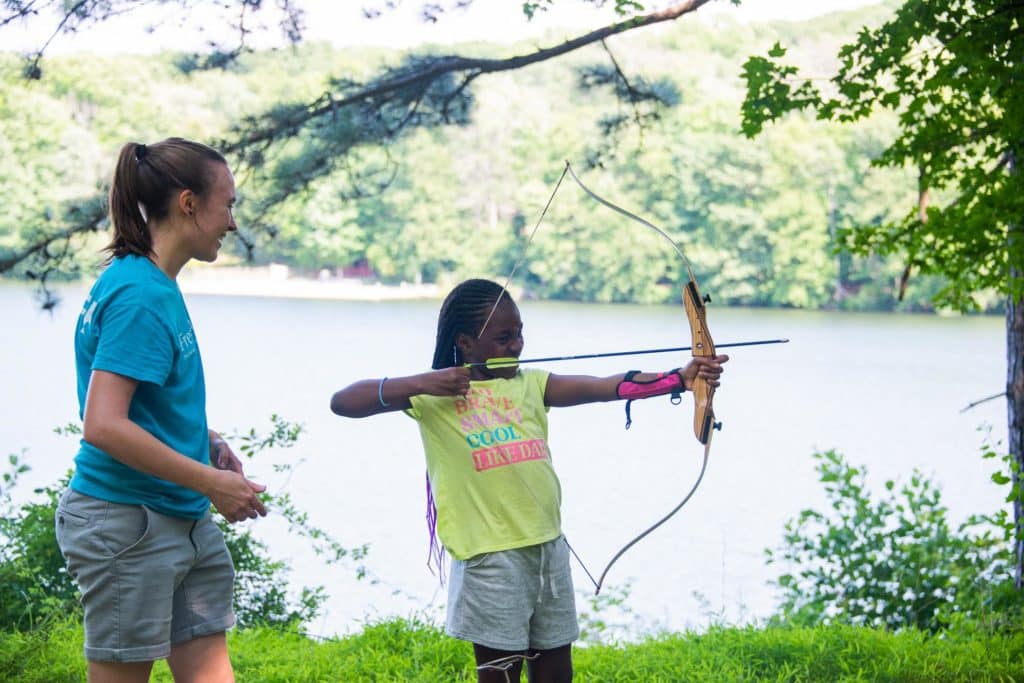
PC: Allison Engkvist
At camp, kids are encouraged to take positive risks – this can range from participating in discussions at workshops to swimming in the lake. “My favorite activity at camp is high ropes. It was really scary when I first started but seeing everyone else doing it was really inspiring,” 17-year-old Counselor-in-Training (CIT), Raymond, shared.
DISCOVERING CONFIDENCE
Outdoor play for kids is important for children’s personal growth. It helps children discover their inner strength and confidence. This can then transfer to other things in their daily lives including having more confidence at school. The experiences in the outdoors gives them the tools to adapt and adjust to different situations.
“Kids spending time outside in nature is so important. It increases creativity, curiosity and builds confidence. It also is vital for mental and physical health,” Kristin shared.
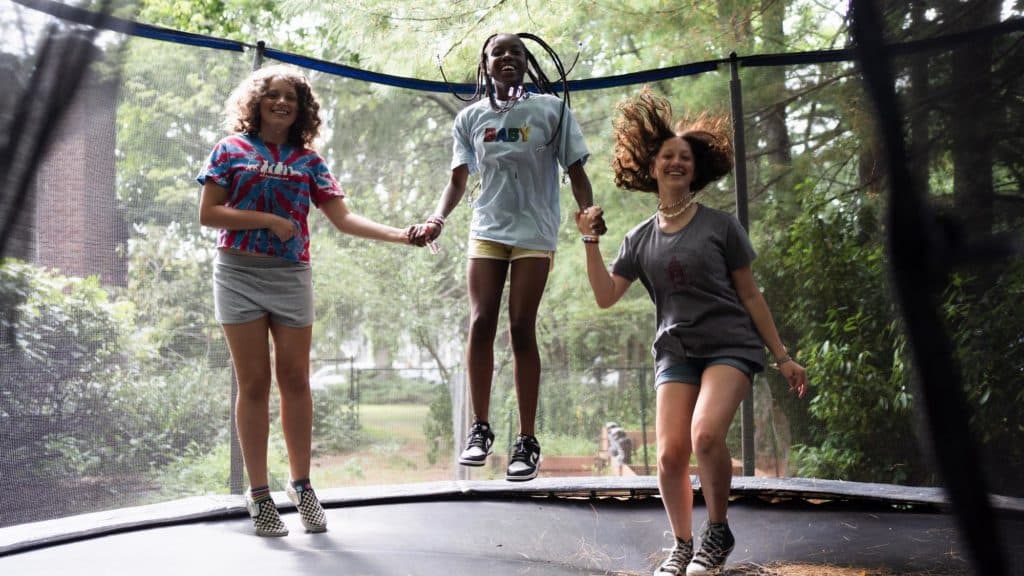
PC: Jay Daniel Papa
When kids build their confidence, it allows them to explore new interests and learn more about themselves as they grow.
“Camp has really motivated me to spend time with new people, make new bonds, and spend more time outside,” 14-year-old camper, Kylee shared.

